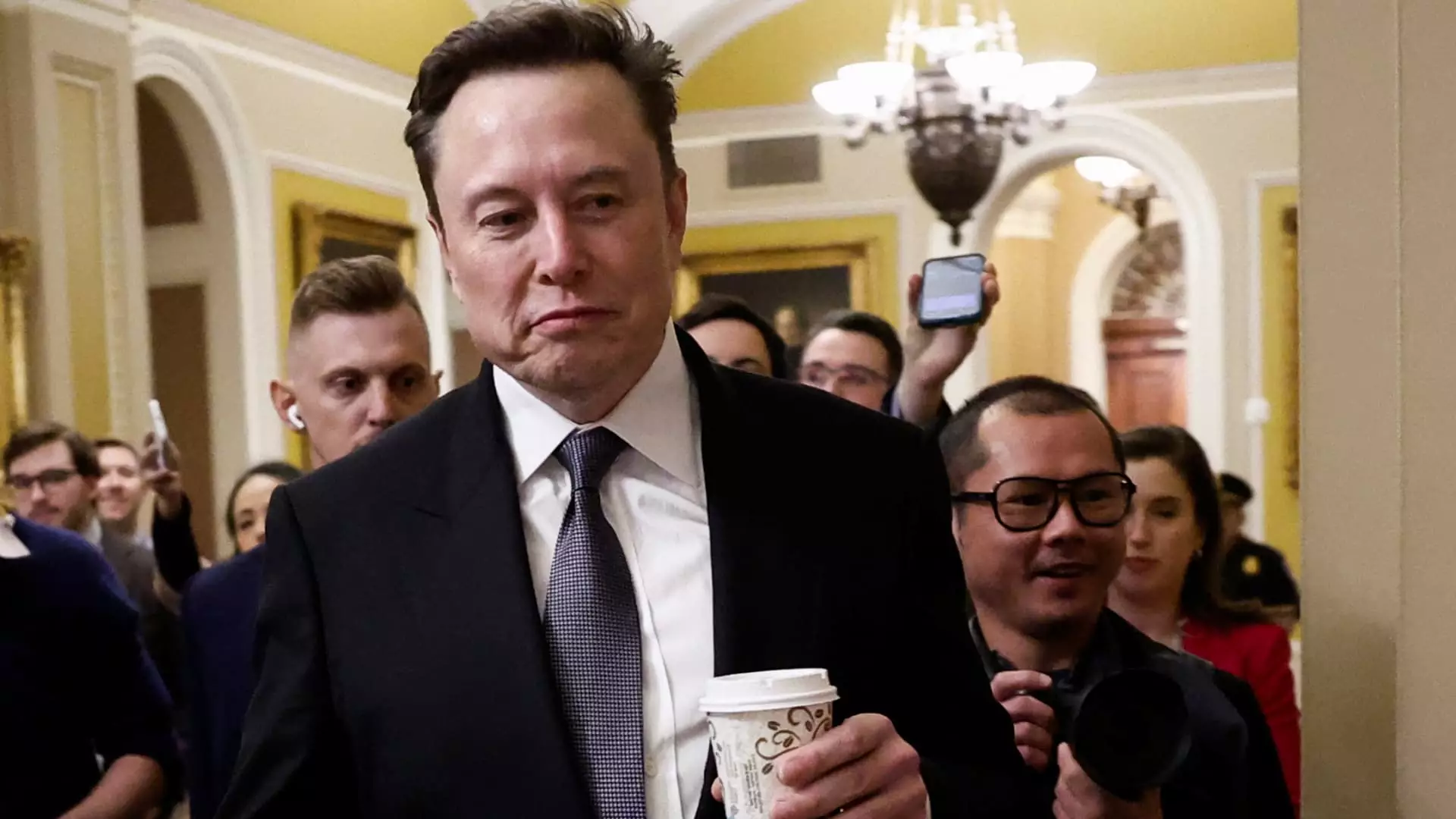Recent tensions in Congress have brought to light the intricate relationship between influential business leaders and legislative actions, particularly concerning technological advancements and international investments. House Democrats Jim McGovern of Massachusetts and Rosa DeLauro of Connecticut articulated their frustration over the failure of a bipartisan government funding bill, which aimed to impose regulations on American investments in China. As the bill foundered, McGovern emphasized on social media how its demise stifled potential initiatives essential for retaining high-tech jobs and advancements, hinting that the intervention of Elon Musk played a pivotal role in this political quagmire.
Tesla, under Musk’s leadership, has carved a unique niche within the global automotive sector, being the only foreign car manufacturer operating a factory in China without needing a local partner. This autonomy, however, comes at a cost: Musk’s business interests in China seem to directly influence his stance on U.S. political matters. As he expands Tesla’s footprint—most notably through the establishment of a battery factory adjacent to its Shanghai plant—concerns have emerged regarding Musk’s commitment to American technological sovereignty versus his business interests overseas. By favoring the lucrative Chinese market, Musk’s relationship with Beijing could undermine U.S. national security, according to critics.
Congressional leaders are warning against the consequences of allowing corporate interests to dictate foreign policy and regulatory frameworks. In her correspondence to Congress, DeLauro specifically pointed out Musk’s need for Chinese governmental endorsements for his projects as a source of concern, framing Musk not just as a corporate titan but as a figure whose actions may jeopardize American principles and security. By deliberately cooperating with the Chinese Communist Party—a regime with conflicting ideologies to those professed by the U.S.—Musk has come under fire for potentially compromising American ideals.
The backdrop of Trump’s administration adds layers to this situation. Trump’s recent aversion to the funding bill appears strategized, particularly to navigate the political landscape as he re-emerges in the public eye. The former president’s hints at legislative maneuvering seem designed to maintain leverage within his party while sidelining bipartisan attempts to regulate the tech sector, most notably to fulfill his agenda without disruption. Musk’s outspoken support for Trump and substantial financial contributions to GOP causes illustrate the intertwining of corporate and political objectives, showcasing a growing concern among Democrats regarding the influence of wealth on governance.
As the U.S. grapples with the expansive reach of technology corporates like Tesla and SpaceX into foreign territories, fears regarding data security and technological dependency on rival nations persist. The pushback from lawmakers like McGovern and DeLauro serves as a clarion call for heightened scrutiny of how American corporations may inadvertently support rival nations’ agendas under the guise of business interests. Musk’s struggles with regulatory frameworks illustrate a broader critique of how business elimination can lead to geopolitical vulnerability, particularly with advancements in artificial intelligence and autonomous technology.
Going forward, the implications of these dynamics may have lasting effects on legislative approaches to technology investment and regulation. Lawmakers must find a balance between fostering innovation and safeguarding national interests, a complex challenge heightened in a hyper-connected global economy where technology firms transcend traditional borders. The necessity for cohesive bipartisan efforts to create a robust regulatory framework cannot be overstated. As the intersections of wealth, influence, and policy become more pronounced, the U.S. can only hope to navigate these waters without compromising its foundational values.
In sum, the discussions surrounding the Congress’s funding proposals and Musk’s involvement reflect a critical juncture in American governance, where the power of individual interests can shape the trajectory of national policy and security. The question remains: will Congress rise to the occasion, or will its decisions continue to be swayed by corporate titans?

Leave a Reply